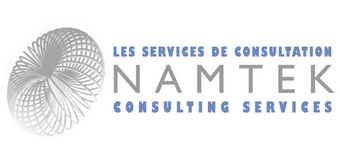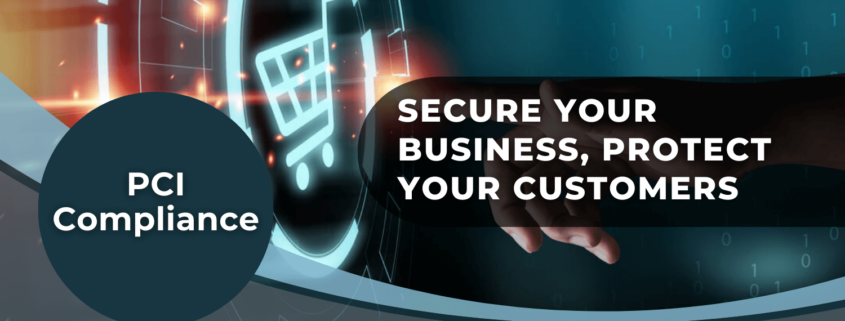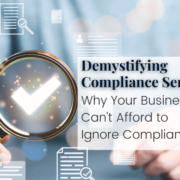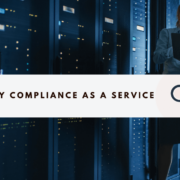PCI Compliance – Secure Your Business, Protect Your Customers
Last Updated on February 6, 2024 by Tatyana Vandich
PCI Compliance Introduction
Whether you’re just starting out or a big player in business, one thing is clear: keeping your customers’ information safe is a must. PCI compliance is crucial for everyone, no matter the size or type of business.
With over 20 years of experience providing cutting-edge IT solutions to small and medium businesses, we, at Namtek Consulting Services understand the importance of data security.
In this article, we share important information for small and medium-sized businesses to provide the knowledge needed to effectively protect your customers’ data.
What is PCI DSS?
The Payment Card Industry Data Security Standard is also known as PCI DSS. In order to maintain a secure environment, companies that accept, process, store, or transmit credit card information must comply with PCI DSS security standards.
The standard is a collaborative effort between major credit card companies, including Visa, MasterCard, American Express, Discover, and JCB.

What are the PCI DSS Requirements?
PCI DSS consists of a set of requirements and security best practices aimed at protecting sensitive cardholder data. According to PCI Security Standards Council, these requirements include:
Build and Maintain a Secure Network:
- Establish and consistently manage a firewall configuration to safeguard cardholder data.
- Never use default system passwords or other security parameters supplied by vendors.
Protect Cardholder Data:
- Protect stored cardholder data.
- Data transmission over open, public networks should be encrypted.

Maintain a Vulnerability Management Program:
- Use and regularly update anti-virus software or programs.
- Develop and maintain secure systems and applications.
Implement Strong Access Control Measures:
- The business needs-to-know principle should be applied to cardholder data access.
- Assign each computer user a unique ID.
Regularly Monitor and Test Networks:
- Monitor and log every instance of access to both network resources and cardholder data.
- Regularly test security systems and processes.
Maintain an Information Security Policy:
Establish and uphold a policy that specifically addresses information security for all staff members
What are the Consequences of Not Complying with PCI standard?
Compliance with PCI DSS is required for any organization that handles credit card transactions, regardless of its size. If a company does not comply with the Payment Card Industry Data Security Standard (PCI DSS), it can have serious consequences. The specific consequences may vary, but some common outcomes include:
Fines and Penalties: Credit card companies may impose fines on businesses that fail to comply with PCI DSS. The fines can be significant and can vary based on the severity of the non-compliance.
Increased Transaction Fees: Non-compliant businesses may face higher transaction fees from credit card companies. These increased fees are often applied as a way to offset the additional risk associated with handling transactions from non-compliant entities.
Loss of Payment Card Processing Privileges: Credit card companies may revoke a business’s ability to process payments if it consistently fails to meet PCI DSS requirements. This can have a severe impact on the operations of the business, especially if credit card transactions are a primary method of payment.
Legal Consequences: Non-compliance may lead to legal action, especially if a data breach occurs, and it is determined that the business’s lack of adherence to PCI DSS contributed to the incident. This can result in lawsuits, legal expenses, and settlements.
Reputational Damage: A data breach or any public revelation of non-compliance can severely damage a business’s reputation. Customers may lose trust in the organization’s ability to safeguard their sensitive information, leading to a loss of business and long-term damage to the brand.
Increased Security Costs: After a breach or non-compliance issue, a business may incur additional costs to enhance its security measures, conduct forensic investigations, and implement remediation efforts. These costs can be substantial and may not be covered by insurance.
Loss of Customer Trust: Customers may lose confidence in a business that fails to protect their payment card data. Restoring trust can be a challenging and time-consuming process, and some customers may choose to take their business elsewhere.
LET US HELP: Not sure if your business is running as efficiently as possible? Request a FREE one-on-one 1-hour consultation session with our in-house experts.
Given these potential consequences, it’s crucial for businesses to prioritize PCI compliance and invest in the necessary security measures to protect cardholder data. This not only helps mitigate the risk of financial and reputational damage but also demonstrates a commitment to security and customer trust.
It’s important for businesses to understand and implement the necessary security measures to achieve and maintain PCI compliance to protect both their customers’ sensitive information and their own reputation.
How do I know if My Business is PCI Compliant?
Determining whether your business is PCI (Payment Card Industry) compliant involves assessing your adherence to the PCI Data Security Standard (DSS). Here are steps to help you determine if you are PCI compliant:
Understand PCI DSS Requirements
Familiarize yourself with the PCI DSS requirements. These requirements cover areas such as network security, data protection, access control, and regular monitoring.
Self-Assessment Questionnaire (SAQ)
PCI DSS provides Self-Assessment Questionnaires (SAQs) to help businesses assess their compliance based on their specific payment processing environment. There are different SAQ types, each tailored to different types of businesses and how they handle cardholder data. Determine which SAQ is applicable to your business and complete it honestly.
Engage with a Compliance Service Provider:
When Self-Assessment Questionnaires prove challenging, companies can turn to compliance service providers such as Namtek Consulting Services for assistance. They will perform a thorough examination of your security controls and practices.
Thus, consulting with qualified professionals can provide a more thorough assessment and guidance on achieving and maintaining compliance. Remember that PCI compliance is not a one-time task but an ongoing commitment to security best practices.
Conclusion: PCI DSS Compliance
Secure your business against the ever-growing threat of cyberattacks with our dedicated Compliance Services. Our team of experienced professionals is ready to guide your company through the complexities of cybersecurity compliance, ensuring that you effortlessly meet and maintain the highest standards, including PCI DSS.
Whether compliance audits are mandatory for your industry or you simply aim to fortify your security measures, our services empower SMBs with a seamless solution.
By engaging our experts, you can trust that your company’s PCI compliance is in capable hands, eliminating the need for extensive internal resources or specialized compliance expertise.
Safeguard your business and customer data with confidence, knowing that you have a reliable partner committed to your cybersecurity success.









Leave a Reply
Want to join the discussion?Feel free to contribute!